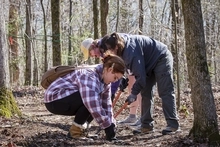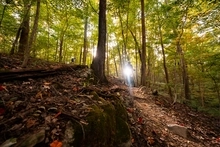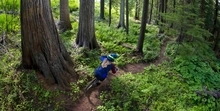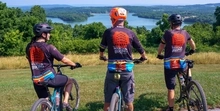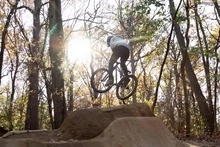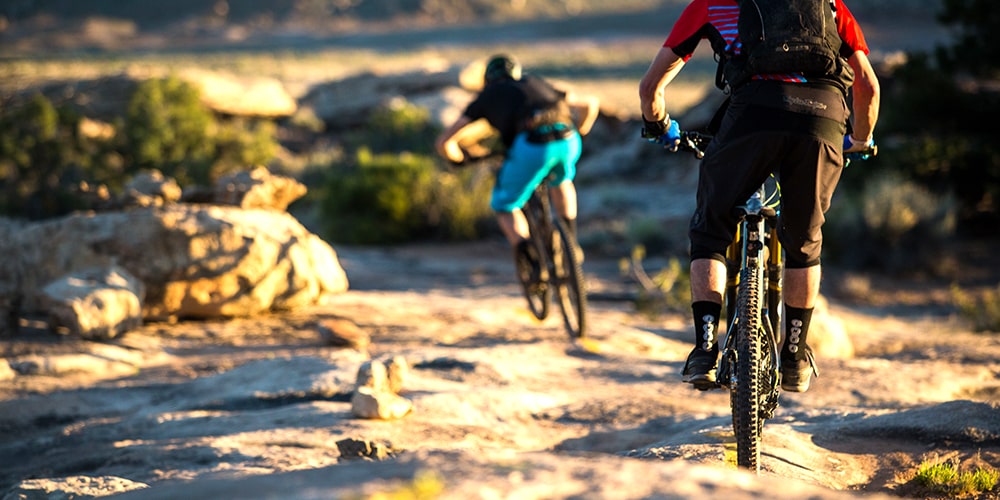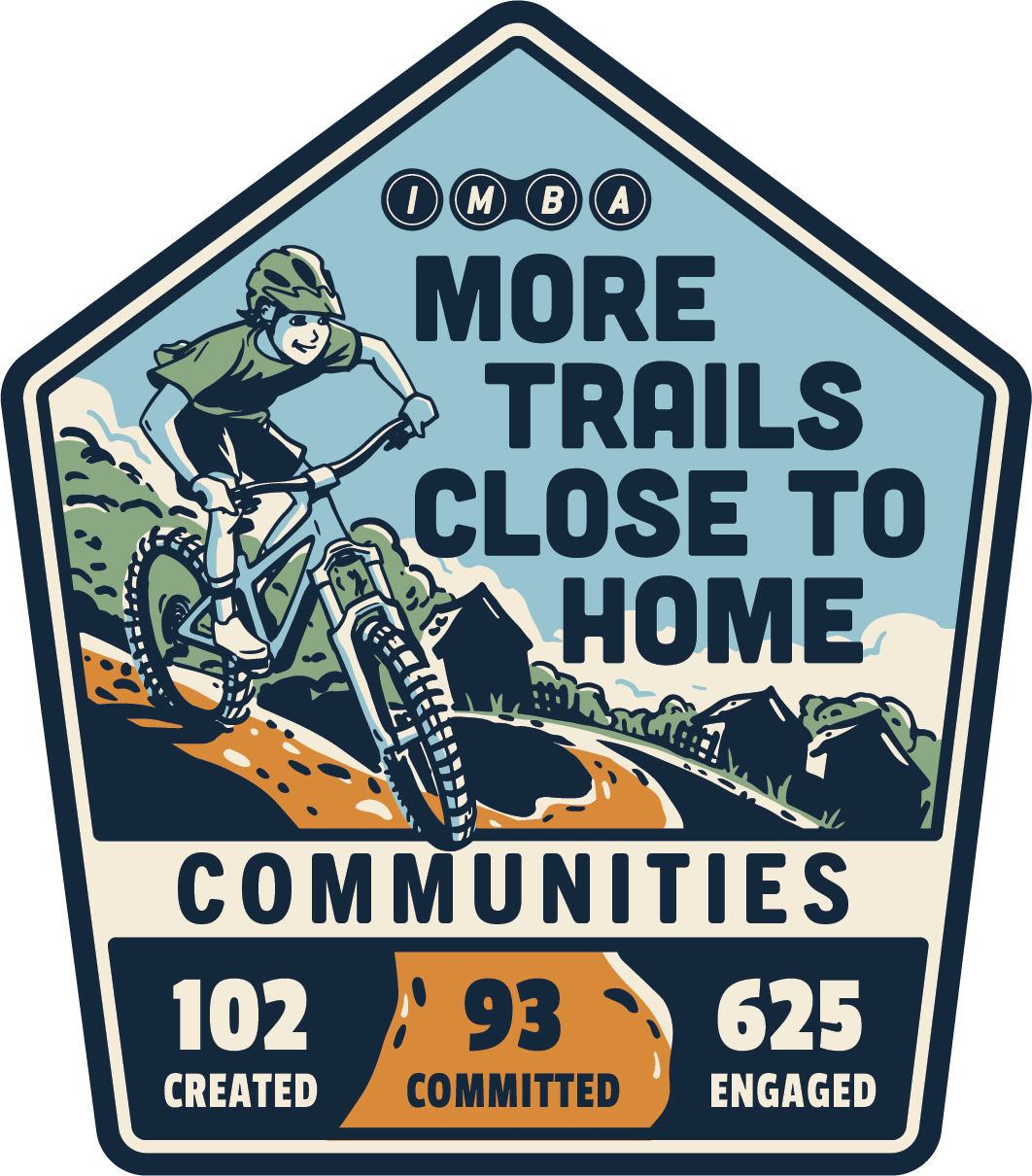Green Trails, Greenways, and an Ecosystem of Trails
Unlocking trail access for adaptive athletes, bringing mountain biking to a new generation of urban riders, and providing a gateway for underserved communities to enjoy the outdoors. These are some of the ways organizations in the Pacific Northwest are making trails more welcoming to riders of all skills and backgrounds.
IMBA has partnered with the Central Oregon Trail Alliance (COTA), Evergreen Mountain Bike Alliance (EMBA), and the Northwest Trail Alliance (NWTA) in securing grants for projects that will diversify trails in their respective communities. Through this funding, IMBA is supporting organizations in bringing more trails close to home to hundreds of thousands of people in the region.
Trails for all abilities

Photo courtesy of Oregon Adaptive Sports
Bend, Oregon is home to hundreds of miles of singletrack and a solid community of adaptive riders. However, many of these trails need assessment and additional resources to help adaptive trail users plan rides. The Central Oregon Trail Alliance (COTA) is changing that.
COTA is working with Oregon Adaptive Sports to assess and modify trails for adaptive bikers to provide more opportunities for independent riding. Through this project, COTA hopes to create a model which other groups across the country can use to make mountain biking accessible to riders of all abilities.
"I'm so excited about this project because many of Central Oregon's trails are already wholly or mostly accessible to riders of adaptive mountain bikes–we just need to document and publicize it,” said Emmy Adrews, COTA Executive Director. “We have a great opportunity to open 100 miles of trails to adaptive riders of multiple skill levels by mid-2023. I'm so stoked to help get Central Oregon 'on the map' for the adaptive biking community."
Crew leader Abbie said, "I'm interested to learn from experts in the field how our local trails can be made more aMTB friendly and what things we need to be considering when building and maintaining trails. I've also noticed that while Bend has a pretty active adaptive sports community, I am more accustomed to seeing adaptive athletes skiing, which seems to indicate that there is an opportunity for improving aMTB accessibility."
COTA is a nonprofit that builds, maintains, and advocates for trails in Central Oregon. The organization currently maintains more than 500 miles of trails and six skills areas, with an additional 150 miles of new trails in the planning phase. COTA formed in 1992 and is celebrating 30 years of trails in 2022.
Mountain biking in the inner city
Evergreen Mountain Bike Alliance
Photo courtesy of I5-Troll on TrailForks
You don’t need a forest for a good ride experience. Urban mountain bikers in Seattle will tell you they get a good amount of stoke from the concrete jungle that is the Colonnade Bike Park, located underneath Interstate-5.
The park was constructed by the Evergreen Mountain Bike Alliance (EMBA) in 2008, nearly 40 years after the freeway was built and divided the neighborhood. Colonnade created a much-needed connection. It was also the first time riders were given permission to build trails and features on public land in the city. The builders thought, “what better place to build epic features than under the I-5, close to home and easily accessible after work.”
Despite Colonnade being in close proximity to a large urban population, few bikers enjoy its advanced trails. And, as the mountain bike community in Seattle continues to grow, there is a need to renovate sections of the park to incorporate beginner and intermediate features.
EMBA is working on upgrading I-5 Colonnade Park by adding durable, progressive features to make the space more welcoming for a diverse set of inner city users. The organization is also working with partners to facilitate skills clinics and programs to bring mountain biking to anyone seeking it. Learn more about the Colonnade project.
EMBA a statewide mountain bike association, representing thousands of riders through eight regional chapters in Washington. The group works on trail building and maintenance, advocacy, and education, with their volunteers contributing over 29,000 of trail work per year.
A gateway to outdoor recreation

Gateway Green Park in Portland, Oregon sits between two freeways in an area once considered the “gateway to the Columbia Gorge.” The park, now home to an asphalt pump track, 2.5 miles of singletrack, and adaptive MTB loop, is also a gateway for folks from underserved, minority populations to enjoy the outdoors.
The park draws riders of all ages and abilities. Usage of bike facilities in Gateway Green continues to increase, and the skills area, a popular feature among youth riders, is in need of repair. The Northwest Trail Alliance (NWTA) has is working with the Portland Parks and Recreation and other partners to rebuild the much-loved bike skills area.
“Gateway Green is immensely popular and is utilized for adult clinics and youth programming in an area of town where communities traditionally have had difficult access to bike trails and nature,” said Lisa Olivares, NWTA Executive Director. “We’re incredibly excited to update and expand the skills park, where so many riders of all ages are meeting, riding, and building their confidence on a bike. A well-constructed skills park will better serve all that enjoy this urban space and put more focus on the progression of riding.”
NWTA is an organization that has been building, maintaining, and advocating for trails for over 30 years. The group serves a 60-mile radius radius extending from the Oregon coast, into parts of Southern Washington’s Gifford Pinchot National Forest and Mount St. Helens National Monument, and to the Western foothills of Mount Hood National Forest.


